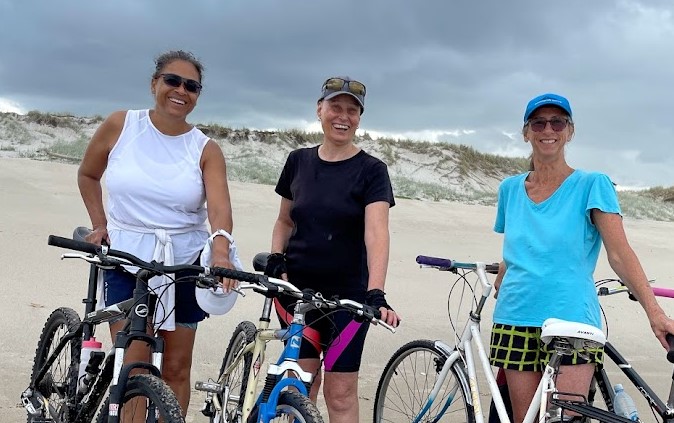Men with breast cancer
Breast cancer is uncommon in men, but it does happen. About one per cent of all diagnosed cases of breast cancer in Aotearoa New Zealand will be in men, with around 25 men diagnosed each year.
Initial symptoms of breast cancer in men can include:
- a lump or lumpiness around your nipple
- a change in the shape of your nipple or breast area
- bleeding from the nipple
- pain in the nipple or pectoral area
- skin changes such as redness, rash, ulceration, puckering or dimpling
- a lump in your armpit
If you have any of these symptoms, seek medical help straight away. Many men assume that only women can get breast cancer and either do not seek help or are too embarrassed to seek help.
Many men who are diagnosed with breast cancer feel embarrassed or ashamed to tell others about the disease, again because it is a disease that is most often associated with women. Some men feel they may be ridiculed or that their masculinity will be questioned because they've been diagnosed with breast cancer. Friends, family and supporters will never make you feel like this. Start by telling close friends and family about your disease so that they can support you through this difficult time.
Surgery for men with breast cancer is usually a mastectomy which involves the removal of all breast tissue, the nipple and areola. It may also involve the removal of lymph nodes and possibly some of the chest muscle, although this is rare.
Follow up treatment may include radiotherapy and/or chemotherapy. You can find out more about these treatment options under the treatment section of this website.
Some men may also be offered hormonal treatments, such as tamoxifen, to control the levels of oestrogen in the body which may be helping the cancer to grow.
You may also like to look at our support pages for more information on how to cope with the physical and emotional changes a breast cancer diagnosis brings. There's information on our Sex, Relationships and Breast Cancer page on how to deal with effects on your intimate relationships.
Find out more
For more information, you may like to check out the following links:
- Australian website, Cancer Australia has a special website devoted to breast cancer in men.
- The New Zealand Cancer Society, Te Kahui Matepukupuku o Aotearoa, produces a booklet on breast cancer in men. They also have an updated more general resource on Cancer and Men.
- You may want to get a copy of a useful book, Male Breast Cancer, Taking Control, written by US cancer expert Professor John Boyages MD, PhD.
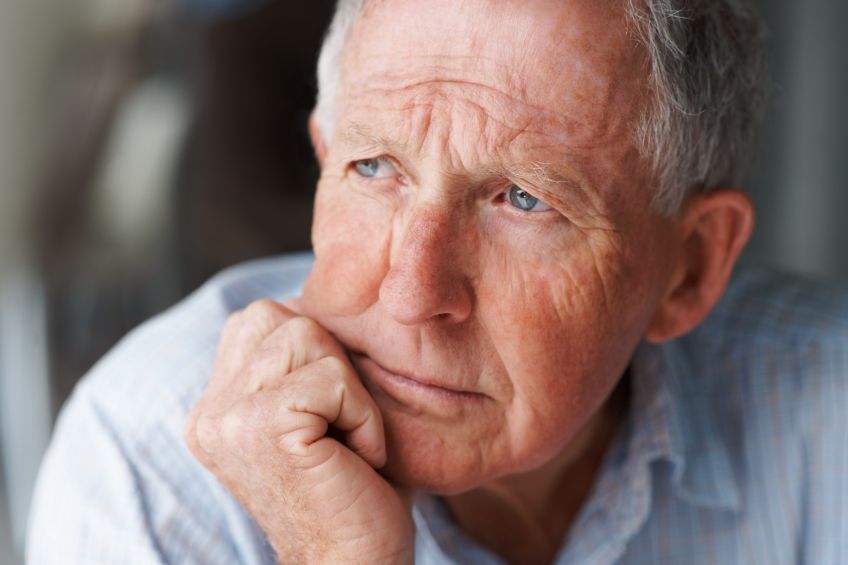

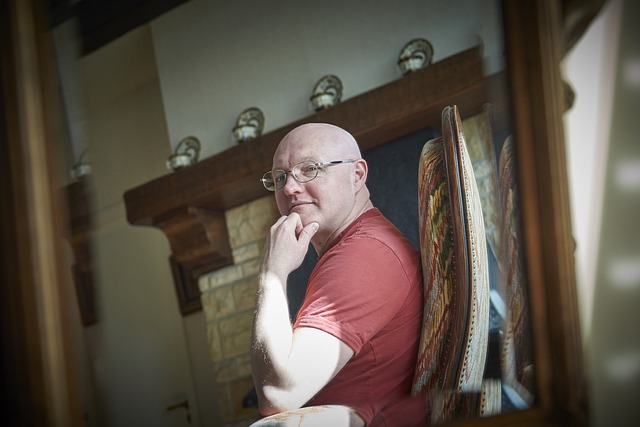

Financial and career issues
For many women of working age the impact of breast cancer on finances or career can be a pressing issue.
You may be worried about how taking time off for treatment for breast cancer may impact your career or how the disease may affect your colleagues’ perceptions of your career path. Remember the most important thing is to get well. Once you are better you will find that others soon forget your illness and it will cease to affect their views of your ability to do your job or your commitment to your work.
If breast cancer treatment puts you under financial stress because you have to pay for treatment or take time off work, there is help available. You may be eligible for:
-
a sickness benefit – visit Work and Income New Zealand for more information
-
a grant available through the Cancer Society of New Zealand.
Remember also that many friends and family will be willing to help out financially if they know this is what you need or what you are worried about. Try not to stress about money at this time too much - the most important thing is to focus on getting well.
In future, your experience of breast cancer may affect other financial decisions you make, particularly around insurance. Make sure you explore your options thoroughly and find the one that suits you best.
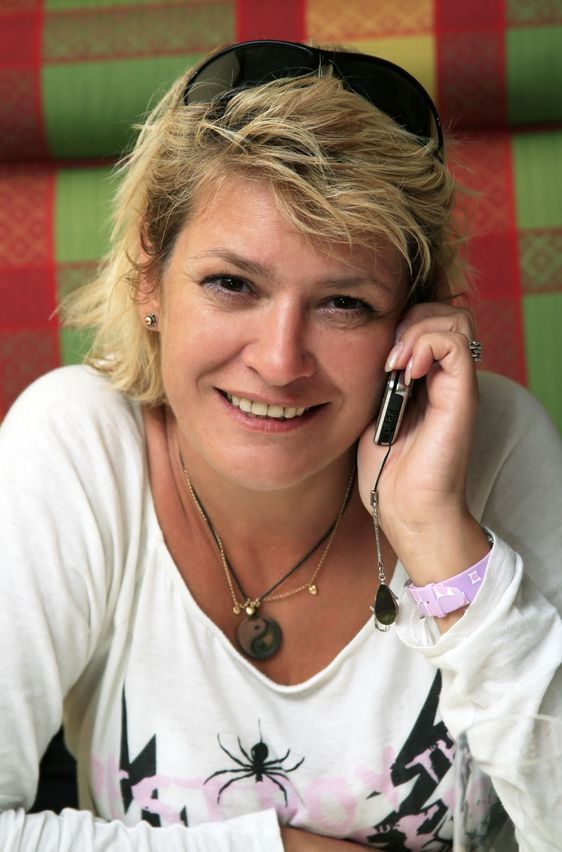
Dating and relationships
Whether you’re in a relationship or not, your romantic life will undoubtedly be affected by a diagnosis of breast cancer.
On this page, you'll find information about:
Dating after breast cancer
If you don’t have a partner, you may feel apprehensive about meeting new people and dating. You may be nervous about telling them you’ve had breast cancer, unsure when to give them this information and anxious about starting a physical relationship.
Here are some tips on dealing with dating after breast cancer:
-
Remember breast cancer is not who you are. It doesn’t have to be the first thing you tell a potential date or something you need to speak about endlessly.
-
Some people may be scared off if you tell them straight away that you’ve had breast cancer. Get to know the person a little first before you give them this information.
-
If you’re unsure how to tell someone about your breast cancer for the first time, practice with a friend or family member. Get the tone right so that you’re not scaring your date or overwhelming them.
-
If your date can’t handle the fact that you’ve had breast cancer, don’t waste energy trying to change the situation. Accept it and move on.
-
Make sure friends and family know you’re looking to meet someone. Most people meet their partners through people they know so this is a good way to connect with potential dates.
-
Be open to new people and new experiences. Surviving breast cancer is a tough experience. It can get you down. Try not to look inwards and withdraw, but to look outwards and be willing to connect with new people and new activities.
-
Keep up a supportive circle of friends and family. Just as breast cancer does not define you, nor does having a partner. Enjoy yourself and make the most of the life you have.
You might also like to check out our information on sex after breast cancer.
Your relationship after breast cancer
If you have a partner, you may find that your physical relationship changes, that you don’t feel as able to share some feelings and emotions as you once did, or that your priorities in life have changed.
Your partner on the other hand may feel, that after treatment, everything will go back to the way it once was. Try to share your new feelings with your partner. Explain to them how things have changed for you and what that means for your relationship. You might like to visit a counsellor together to discuss some of these issues in more detail.
Remember you have both been through a trying time and a significant life event. You will both have changed and this means you may need to devote more time to your relationship to "rediscover" each other.
Your physical relationship may also change. Breast cancer and its treatment will affect your body and some women find they lose confidence after treatment, that they feel less sexy or uncomfortable in their own skin. Side effects from drug treatments may also result in a loss of libido or vaginal dryness.
If you and your partner are having issues with intimacy:
-
Talk to each other about the issues you're having. Explain your feelings clearly, in a non-judgemental way. Offer suggestions as to what may help you.
-
Try relaxation techniques, such as massage to help alleviate anxiety and encourage a connection between the two of you.
-
Lose the focus on sexual intercourse and orgasm in the short term. Instead, focus on kissing, touching and foreplay. Let your partner know what helps in this area.
-
If you suffer from vaginal dryness you might like to try a vaginal lubricant or moisturiser.
-
If you are still having problems with intimacy, you and your partner may like to speak to a counsellor or sex therapist either together or separately to help work through some of these issues.
Body image
If your breast cancer treatment involves a mastectomy or other surgery, you may have concerns about body image. Sometimes dealing with changes in body image after breast cancer treatment can be more difficult for younger women to deal with.
Photos of surgery scars and mastectomies can be scary and make you feel you will never look or feel normal again. Rest assured that there are many surgical options available which can help to give you a natural body shape. Remember also, that not all women have reconstructive surgery. You may find that after going through the treatment process, this is not actually something you feel the need to do.
Your body has changed - there's no getting away from that and some women find it hard to accept their new bodies. It's important to remember that most women are not entirely happy with their bodies anyway, whether or not they've had breast cancer, so don't be too hard on yourself. Here's some tips on accepting your new body:
-
Recognise that it's important you accept your new body, but acknowledge that you may need to undergo a grieving period for the loss of your breast or breasts.
-
Use prostheses if these make you feel better or explore the possibility of breast reconstruction if you think this will help you.
-
Make it a priority to accept your new body - gradually get used to the way you look naked now. Stand in front of the mirror and identify three positive things about your body.
-
If you have trouble with your partner seeing you naked, especially when having sex, wear lingerie or something that makes you feel good about yourself.
-
Wear clothes that compliment your body and make you feel good about yourself.
-
Get regular exercise and focus on the things your body can do for you.
-
Check out BCAC member group, Look Good Feel Better, which runs programmes for women undergoing cancer treatment to help them feel better about their physical appearance.

Support for young women
Being diagnosed with breast cancer as a young woman can be an especially tough and sometimes lonely experience. It’s more unusual for women under 40 to get breast cancer, but it does happen. However, there are fewer people your own age to discuss your experience with and you may feel more isolated and less able to make use of support groups.
If you are diagnosed at a young age, the shock may be greater and you may feel a greater sense of “why me?” Sometimes women who are diagnosed with breast cancer at a young age have a more aggressive form of the disease so you may feel unsure of your ability to fight it and scared of what the future may hold.
Your concerns may be different from those of older women who get breast cancer. On these pages you'll find information on some of the common issues that young women grapple with when they are diagnosed with breast cancer.
Some of these issues, include:
- Fertility
- Effects of hormone treatment
- Body image
- Dating and relationships
- Financial and career issues
- Access to support for younger women
You may experience some of these or none of these. Remember everyone is different and some issues will be more relevant for you than for others.
Click here to view a video of a Q and A session on Breast Cancer and Young Women, run by Breast Cancer Trials.
Support from other young women
As a young woman with breast cancer you may find the traditional support groups do not meet your needs. You may find yourself talking with women much older than yourself who do not relate to the issues you’re concerned about.
It can also be isolating talking with your own peer group who have no concept of what you are going through. Their concerns may seem trivial and unimportant to you.
You can always seek help and advice from a professional counsellor and this may be a good way to discuss your concerns with someone neutral and objective. Remember also, that although women in support groups may be older they are likely to have experienced the same kinds of treatment regimes so can relate to the physical and mental stresses of treatment.
If you’d like to get in touch with other young women with breast cancer, you could try posting on the Cancer Society's forum, CancerChat NZ, or alternatively you can contact us and we’ll try and put you in touch with other young women with breast cancer in your area. One of our member groups, Shocking Pink, is a Christchurch-based group set up to support young women with breast cancer. To contact them please email them at info@shockingpink.org.nz.
Another BCAC member group, Breast Cancer Support, also has a young women's group that meets regularly in Auckland. For more information visit their website here or email them at support@breastcancersupport.co.nz or call them on 0800 273 222.
BCAC member group Aotearoa NZ Breast Cancer Community is an online community for New Zealand women of all ages with breast cancer to connect and share information and support. Visit their website here and their Facebook page here. Anyone with a breast cancer diagnosis (at any time) is welcome to join their private Facebook group, contact aotearoanzbreastcancercommunity@gmail.com.
You might also like to check out these websites and groups that offer advice and information for young women with breast cancer.
- www.youngsurvival.org – an American site specifically for young women with breast cancer
- www.wildfirecommunity.org - Wildfire magazine and writing community for young women - online group based in America - check out their brochure here
- http://community.breastcancer.org/forum/27 - a forum specifically for young women on this American site
- www.fertilehope.org - American site for those with cancer concerned about fertility
In addition to the information above, you might also like to check out our other support pages on living with breast cancer and life after breast cancer, which have helpful tips and advice on coping with the emotional and physical challenges of breast cancer.
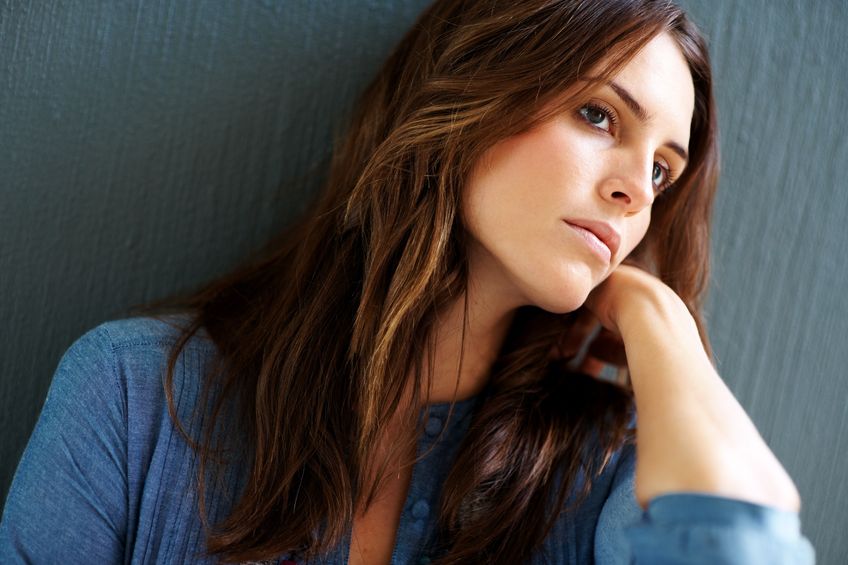
Fertility Issues
For a woman of child bearing age, a diagnosis of breast cancer can cause a natural anxiety about the risk of infertility. A treatment regime of surgery and radiotherapy is unlikely to result in fertility issues, but if you need chemotherapy or certain hormone therapies, your fertility may be affected.
Speak to your oncologist about the potential impact on your fertility of the treatments offered. In addition, you may want to seek the advice of a fertility specialist to further discuss your options for fertility preservation. In New Zealand, women experiencing breast cancer are entitled to a funded consultation with a fertility specialist so it’s a good idea to take advantage of this if you are young and might want children in the future.
On this page we outline:
- the potential impacts of chemotherapy on fertility
- the fertility treatment options available to women who want to have children after breast cancer treatment
- getting pregnant after treatment
- the impact of hormonal therapies on fertility
The impact of chemotherapy on fertility
Chemotherapy combinations typically used for early breast cancer are likely to cause at least temporary amenorrhoea (cessation of periods) in most women under the age of 50. The likelihood of your normal periods returning after chemotherapy is affected directly by your age. For example, in women under 40 whose periods stop after treatment with the common breast cancer chemotherapy combination, FEC, this is reversible in more than 75 per cent of cases. However, amenorrhoea following the same treatment in an older woman is reversible in less than 20 per cent of cases.
So, the older you are, the more likely the ovarian shut-down is to be permanent. As a general rule, women 35 and over are more like to experience permanent ovarian shut-down and infertility.
If you have not had children and think this is something you would like to do in future, then these statistics can be worrying. Make sure you have a comprehensive discussion with your oncologist about fertility issues. Some chemotherapy drugs cause more damage to eggs than others, so you may be able to undertake a chemotherapy regime which has a lower-risk of egg damage.
Fertility treatment options available
There are a number of fertility preservation options open to younger women who have been diagnosed with breast cancer. Below, Dr Mary Birdsall, a fertility specialist with Fertility Associates, outlines the options currently available.
Women with breast cancer who are undergoing chemotherapy are able to have a funded consultation with a fertility expert in order to discuss their options.
The alkylating agents in chemotherapy such as cyclophosphamide will cause some or all of the eggs in the ovaries to be destroyed. Women are born with a fixed number of eggs and so there is no opportunity for regeneration of eggs. The impact that chemotherapy will have on an individual's eggs depends on the dose, the age of the woman and how many eggs she has. Even when a woman resumes menstruation post chemotherapy, her reproductive window is likely to considerably reduced. If a woman wants to have eggs, embryos or ovarian tissue frozen it is ideal to do this prior to chemotherapy being given.
Options for women in this situation include:
- do nothing except getting on with their breast cancer treatment
- consider using a donor egg after treatment if they are found to be menopausal
- have embryos frozen before treatment
- have eggs frozen before treatment
- have ovarian tissue frozen before treatment
Egg donation is where another woman goes through an in vitro fertilization (IVF) cycle, a batch of her eggs is collected, fertilised with the recipient's partner’s sperm and the consequent embryos are placed into the recipent's uterus. This may be funded for up to two cycles provided the recipient is aged less than 40. Success rates are related to the age of the egg donor but typically would sit at around a 40% live birth rate per cycle.
The second option is to undergo a cycle of embryo freezing prior to the start of chemotherapy. This option involves having ovarian stimulating drugs for about two weeks, then your own eggs are harvested, fertilised with your partner's or donor sperm and the embryos frozen. Embryo freezing may be funded but is not always an option for all because of time constraints, a partner is required and ideally the breast cancer should be oestrogen receptor negative.The chances of a pregnancy resulting from one cycle of embryo freezing are related to your age and if you are 36 or younger would be just under 50 per cent. If a woman has a hormone dependent breast cancer, there are some more experimental stimulation regimes which may be considered.
Option number three is egg freezing. This is not currently funded in New Zealand, although the Minister of Health has been asked to provide funding. Once again ovarian stimulating drugs are used for around two weeks, the eggs are collected and then frozen. This technology is new and there have been fewer than 1000 babies born worldwide using this technology so it is impossible to give success rates. This is also not always an option as some time is needed resulting in a delay in treatment of the cancer and the use of fertility drugs may be risky for women with hormone dependent cancers. The cost is around $9000 and then a further $2000 for thawing and replacement in the uterus.
We are also able to freeze ovarian tissue obtained via a laparoscopy. This tissue may then be reimplanted at a later date. This technique is very experimental with only 12 pregnancies reported to date. No funding is available. The advantage of this option is that it does not require ovarian stimulating drugs.
Finally, there is also interest in the concept of chemoprotection, which is when a medication called a Gonadotrophin Releasing Agonist is given at the same time as chemotherapy and may provide some protection to the eggs. Several large clinical trials are under way around the world to determine the efficacy and safety of this option. The drugs used in this technique are funded.
Any tissue frozen in the options listed above is stored in liquid nitrogen at minus 196 degrees centrigrade and may be frozen indefinitely. There is however legislation in New Zealand which limits storage to 10 years although an extension may be applied for.
It remains my aim that all women who have not completed their families and who are facing cancer treatments which may compromise their fertility options would have the opportunity to discuss their options with a fertility expert.
Getting pregnant after treatment
Women who get their period again after chemotherapy treatment need to be careful about birth control. Even though you are menstruating again, the chemotherapy treatment could have caused damage to eggs which may result in birth defects if you become pregnant. Doctors generally advise that you wait for a certain length of time after chemotherapy treatment before trying to get pregnant. Speak to your doctor for more information on this.
There is no higher risk of relapse for the breast cancer survivor who becomes pregnant at a later time, although many oncologists will recommend that pregnancy is delayed until after the period of highest risk of relapse (the first 2-2.5 years). This minimises the likelihood of being diagnosed with relapsed breast cancer during pregnancy, which is a very challenging situation for both the patient and their oncologist.
Hormonal treatments
Hormone treatments after chemotherapy
Hormone treatments, such as tamoxifen, Arimidex, DP Anastrozole, Aromasin or Femara, aim to reduce the risk of breast cancer recurring by limiting the production of oestrogen in the body. These therapies are used for women who have breast cancer that is driven by the hormone oestrogen and are generally taken for a period of five years or more.
However, these treatments can result in your periods stopping temporarily or they may result in early menopause for young women. Not all women will experience early menopause with these treatments, but some will. If you think you may want to get pregnant after your primary treatment for breast cancer then you will need to discuss the option of hormone therapy carefully with your doctor.
It is not safe to become pregnant while taking any of these medications. They can cause damage to the developing foetus resulting in birth defects.
Hormone treatments can reduce the chance of breast cancer recurring so you will have to weigh the pros and cons of hormone therapy with the pros and cons of fertility preservation. Have an in-depth discussion with your oncologist and a fertility specialist. You may also benefit from talking with a counsellor to work through the issues that are most important to you.
You might also like to read the section on fertility preservation.
Hormone treatment during chemotherapy
There has been some exploration of the option of reversible ovarian suppression i.e. blocking ovarian function with luteinising hormone-releasing hormone (LHRH) agonists while receiving chemotherapy, in the hope of more effectively preserving fertility. However, there are some concerns with this approach:
- Some of the drugs used for chemotherapy in breast cancer still cause gene damage when cells are not growing and thus suppression will not completely protect the oocytes (eggs)
- The use of LHRH agonists to suppress ovary function e.g. using Zoladex, can result in a flare in hormones that might drive hormone-sensitive tumour cells
- Hormonal therapy using other agents, e.g. tamoxifen concurrently with chemotherapy has been shown to worsen outcomes
- The only randomised trial of this approach was negative and other reported trials have major design problems
Because of these concerns most authorities advise against the use of ovarian suppression as a means of preserving fertility when a young woman is receiving chemotherapy for early breast cancer.

Friends
Supporting a friend through breast cancer can be difficult. You may be unsure how much your friend wants to tell you or how much your friend would like you to be involved.
Make sure you remain in close contact with your friend - she may be too tired, sick or worried to make contact with you. Don't take this as a sign she does not need or value your help or friendship.
Make sure you continually offer to be there for her and let her decide which of your offers of help or support she feels inclined to take advantage of. Remember, breast cancer treatment can often be a lonely and isolating time for women and friendships of all kinds are important.
Tips for helping a friend with breast cancer:
- Be there for your friend. Make time to visit on the good days and the bad days. Make sure your friend knows they can call on you.
- Offer practical support whenever you can, but be realistic about what you can do.
- Call your friend and ask "when" you can help, not "if" you can help. Don't take no for an answer. Sometimes women have trouble accepting help, make sure your friend accepts your help.
- Become a good listener. Listen to your friend’s thoughts and feelings. You don’t necessarily have to respond – just be there to hear her.
- Don’t offer advice or relay stories of others’ cancer experience.
- Let your friend know if you feel uncomfortable or unsure of what to say. This may help to break the ice.
- Remember that your friend will not necessarily want to talk about her illness. She may want to discuss everyday matters, family and friends. Respect her wishes and follow her lead.
- Try to enjoy relaxing activities with your friend that will be good for her wellbeing – a walk on the beach, enjoying a concert etc.
Children
If you have children, how much you tell them will depend on how old they are. Give them age-appropriate information and make sure you are always honest with them. Do not try to hide things from them.
Do keep an eye on your children/teenagers. This is a difficult time for them as well and they can react in different ways. They may feel angry, lonely, scared or left out. Seek help for them from a counsellor if you think they need it.
On this page we look at:
- why you should tell your children what's happening
- what you should tell your children
- how you should tell your children
- more resources on talking to children about cancer
Why should you tell your children about your cancer
- Breast cancer is a disease that will affect the whole family. It will mean practical changes and emotional changes for you, your partner and your children. Your children need to know what is going on so that they can understand these changes and deal with the subsequent emotions.
- If you do not tell your children what is going on, they could imagine the situation is worse than it is.
- Children are likely to overhear conversations etc about your breast cancer. It is better that they know what is happening and feel able to ask you questions if they do not understand something, than for them to misinterpret information they may overhear.
- Children have access to the internet and books. Discussing breast cancer with them and helping them to access information will ensure they get reliable and accurate information rather than details that may not be accurate or which may be frightening or scary.
What should you tell your children
- It is best to speak to your children soon after your diagnosis so they know what is going on from the outset. Explain to them you have a disease called cancer and give them a few age-appropriate details.
- Explain what will happen next for you - that you will have surgery/radiation/chemotherapy - whatever your treatment programme involves. Again, you don't need to burden them with too many details, but give them the outline of what will happen and allow them to ask questions.
- Let them know that treatment may mean you are in hospital for a period of time, that you may feel sick sometimes, that you'll feel tired more often, that you may feel grumpy and have less patience sometimes. Make sure they know these side-effects are nothing to do with them.
- Explain what will happen for them while you are having treatment. They may be worried about who will look after them and who will look after you.
- Make sure they feel hopeful about the future. Let them know that most women survive breast cancer and that although it is an upsetting time now, there will be better times in future.
- Answer their questions openly and honestly. Let them know they can come to you at any time with questions or queries.
- Don't be afraid to cry in front of your children. There is no point in pretending this is not affecting you. Doing so may also give your child permission to cry or to express their emotions as well.
How should you tell your children
- You can speak to your children about breast cancer alone or with your partner. You may feel stronger if your partner is there or you may feel it's something you should do on your own. It's your personal choice.
- You may want to speak to your children as a group or individually. If your children's ages vary, you may like to speak to them individually because the kind of information they want and need will depend on their ages.
- Set aside plenty of time so that your children know this is important and that they can ask questions.
- Talk about the facts of the disease and about feelings and how the disease may make you and them feel. Don't deny the emotions - let your children know it's okay to express a range of emotions - anger, sadness, resentment etc.
- Don't worry your children with other problems that may be associated with your treatment, e.g. money worries.
- Don't push your children to talk if they don't want to, but give them plenty of opportunities to talk about things with you if they do want to.
- Don't lie.
Find out More
-
Read the talking to children section of the UK website MacMillan Cancer Support
-
The Cancer Society has a useful booklet Cancer in the Family: Talking to your children
-
CanTeen Aotearoa supports young New Zealanders who are impacted by cancer. They work with young people aged 13-24 who are dealing with their own diagnosis, a parent or sibling's cancer or the death of a parent or sibling. Visit their website https://www.canteen.org.nz/
-
The New Zealand organisation Skylight offers support to those sealing with change, grief or trauma. They have a range of resources on talking to children about difficult illness, death and grief.
-
The American National Cancer Institute produces When your parent has cancer - a guide for teens which is a useful and interactive resource for teenagers.
-
You might like to contact Kenzie's Gift, which focuses on the emotional wellbeing of families, women and children affected by cancer and works in the Auckland region. It was established to reduce the emotional and psychological trauma families face through painful and frightening cancer treatments and the uncertainties of living with cancer.
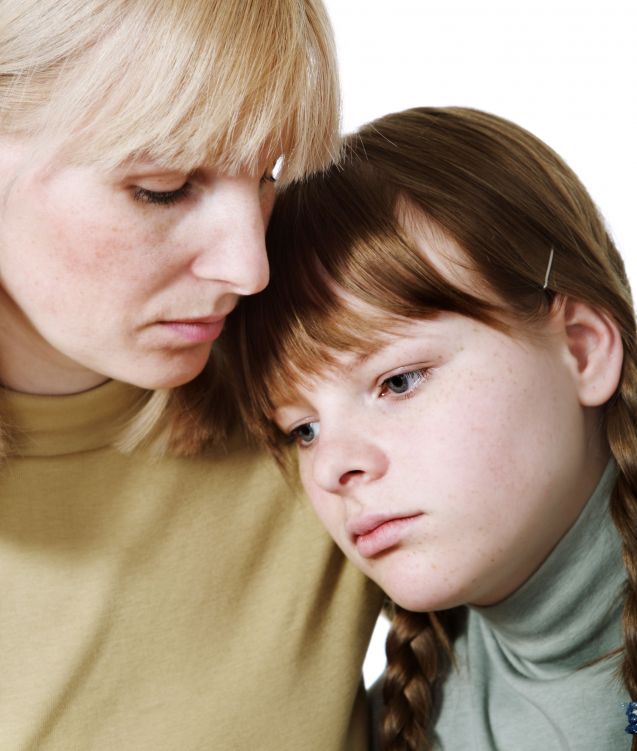
Same Sex Partners
If you’re a lesbian couple, your experience of the breast cancer journey may be different from a heterosexual couple. Some say it can be difficult “coming out” to medical professionals or that support groups do not work as well for them.
Make sure you and your partner find a medical professional you trust, whom you are able to communicate with clearly and effectively and who understands your personal situation.
You may like to make contact with the Mamazon Club – a lesbian breast cancer support network to help you through your breast cancer experience. Please email louisemalone2882@gmail.com for more information.
For some excellent online information for LGBTQI+ people with cancer, check out this website produced by the Cancer Council of New South Wales.
The American site www.breastcancer.org has an online forum specifically for lesbians - http://community.breastcancer.org/topic/76
Tips for lesbian partners on supporting a woman through breast cancer, include:
- Be a good listener. Listen to your partner’s thoughts and feelings. You don’t necessarily have to respond – just be there to hear her.
- Don’t pretend that the breast cancer diagnosis and treatment is having no effect on you. Let your partner know when you can’t handle certain information or a certain conversation.
- Go to hospital appointments with her, not only so that you can provide her with support but also so you know exactly what’s going on medically.
- Get practical help where you need it. You are likely to have to take more responsibility for day-to-day tasks and chores. Farm some of these out to friends and other family members if you can.
- Make sure there’s someone you can talk to, other than the woman in your life with breast cancer, about your worries and concerns.
- If you have children – make sure you monitor how they are responding emotionally. If they are having difficulty coping, seek professional help for them. Kenzies Gift and CanTeen have resources for children and rangatahi affected by cancer in their families.
You may also like to read our articles on sex after breast cancer if you and your partner are experiencing issues with sexuality and intimacy following breast cancer treatment.
